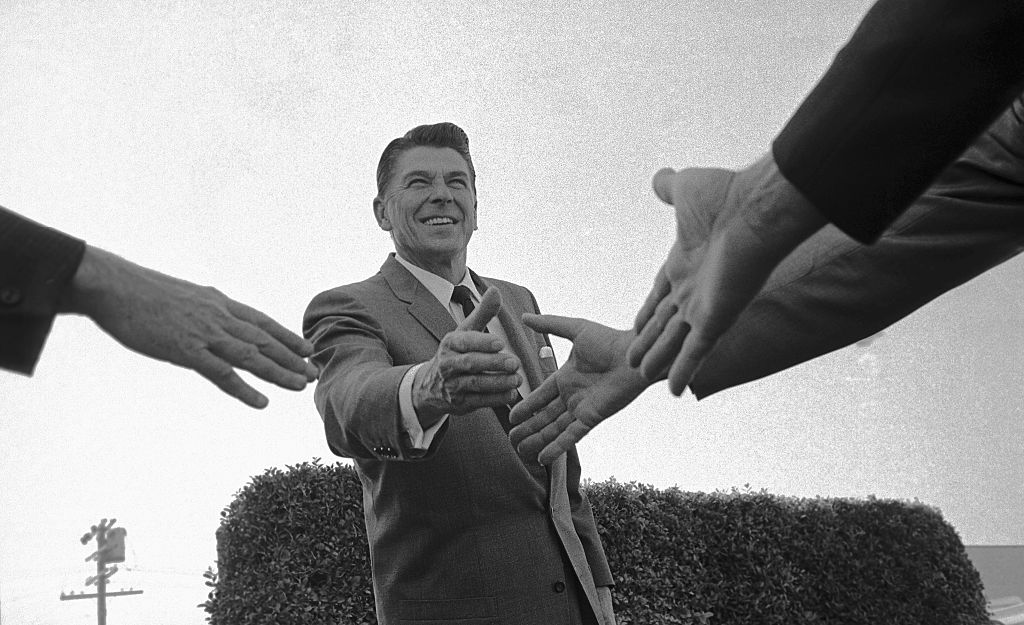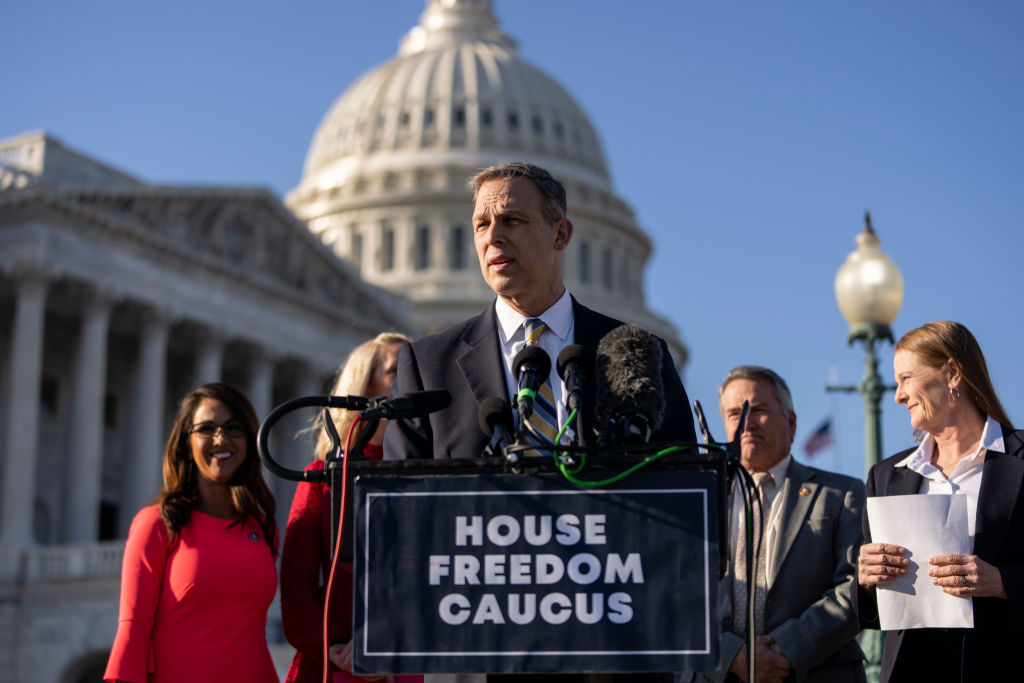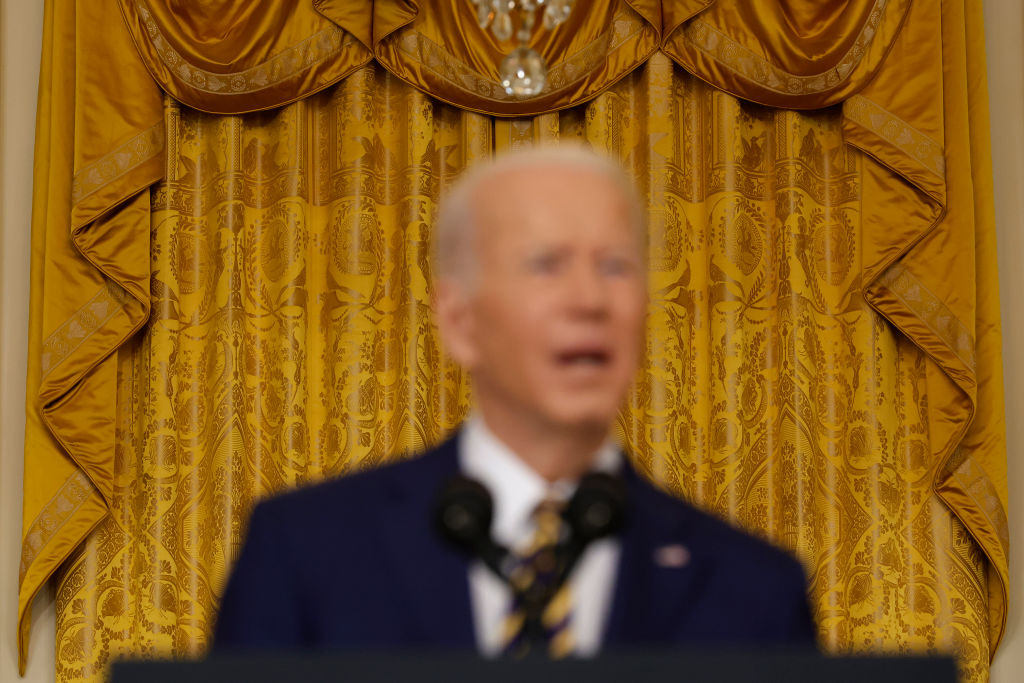Do conservatives know what time it is?
Up From Administration

Must we reconcile ourselves to the federal bureaucracy?
Paul Gottfried’s mixed review of Claremont senior fellow John Marini’s summa on unconstitutional government, Unmasking the Administrative State, leaves the reader with the more than sneaking suspicion that the answer is yes. “It represents a dramatic departure from what our federal union was intended to be, and a deviant model that may already be beyond our control,” Gottfried sighs. “We are being technically ‘administered’ by congressional agencies that run roughshod over our historic liberties;” worse, “there may be no way out of this situation.”
Also concerning, however, is the pique Gottfried reserves not for the nominal villains in the modern history of American government but for Marini himself. Marini’s account of their origins strikes Gottfried as not just overwrought—”he might have spared us his practice of repeating all the talking points of his colleagues at the Claremont Institute”—but indeed unacceptable: “In the book’s introduction, Ken Masugi lets us know (lest we miss the point) that the author is carrying forward the philosophical tradition of Jaffa, ‘who took account of the radical assaults on constitutional government demanded by Rousseau and above all, Hegel.’”
To his credit, Gottfried doesn’t scrimp on praise for Marini’s attack on Congress for abdicating its duties to the Washington regulatory apparatus. But in approvingly citing Marini’s discussion of Carl Schmitt, who diagnosed the same legislative weakness in Weimar Germany, Gottfried appears to think that “legislatures have been forced into doing what they were not meant to do” by “indecisive” executives—hardly the conclusion reached in Marini’s richer and more sophisticated account that Gottfried rejects. Faced with Marini’s claim that “ideology and politics become intelligible only with reference to a philosophy of history, which originated in the political thought of Kant and Hegel,” Gottfried, “as someone who has written on both German philosophy and the administrative state,” is left “truly puzzled.”
The process by which the philosophy of administrative liberalism was transmuted into practice throughout the West is complex and protracted. But the mystery of how it could have developed in America at all—for it was certainly not present at the beginning—raises questions Gottfried is disinclined to answer. Doubtless, a taste or case for “big government” was present since before the creation of the Republic. But as Marini demonstrates again and again, quantitative measures of the state are not the key to understanding what the administrative is; such understanding concerns the qualities of its force. Therefore me must trace the origin of the turn among American elites to embrace administration as a new kind of power—as a new science of rule that surpassed and replaced constitutional government.
Marini allows that more than one factor may be at work in the rise of administration as an intellectual temptation—and then a self-perpetuating mission—in America. As theorists of American democracy from Tocqueville to Marini have agreed, origins have a privileged and persistent influence over the character of nations, yet, as Marini notes, “some nations with long histories have forgotten their origins, or what it was that made it possible to distinguish themselves from others.” Certain technological developments such as industrialization and electrification surely helped shape a social environment in which administration and regulation took on an attraction they simply lacked beforehand.
But institutions and elites have the power to catalyze profound changes in the social order when conditions permit, and by the turn of the twentieth century, America’s intellectual elite—its academics and philosophers—had turned, too, with unprecedented enthusiasm and credulity, to their counterparts in the Old World, especially Britain and Germany, where notions of a grand unified theory of human organization reigned supreme. From Rousseau’s “general will” to Hegel’s dialectic of history, from Weber’s new social science to “ethology,” John Stuart Mill’s proposed science of character formation, Europe gave American elites a sobering but dazzling sense that if they did not update their approach to statecraft to suit the times, they, and the Union with them, would slip into a kind of civilizational backwater, becoming an orphan of history.
The quintessence of this kind of academized member of the American governing elite, Professor Woodrow Wilson, would run for president and win on exactly this basis. In his 1913 essay “What Is Progress?” (included in his book-length call for “the emancipation of the generous energies of a people,” and, notably, not the people themselves), Wilson put the matter quite bluntly. “From the other side of the water men can now hold up against us the reproach that we have not adjusted our lives to modern conditions to the same extent that they have adjusted theirs.” To the American in and out of government who hesitated to replace constitutionalism with a grand unified science of historic-heroic leadership, Wilson warned that “the world has a habit of leaving those behind who won’t go with it. The world has always neglected stand-patters.” The poor anti-progressive, Wilson said, “is going to be so lonely before it is all over. And we are good fellows; we are good company; why doesn’t he come along? We are not going to do him any harm. We are going to show him a good time.”
Industrialization and electrification may have shaped a public context in which Wilson’s revolutionary content could get the kind of hearing it did; but the formation of Wilson’s own character traces not to the Midwestern factory city or the Western telegraph territory but to the Eastward-looking university town—Baltimore, to be precise, where he wrote his PhD (under the intellectual influence of Walter Bagehot, the editor of The Economist) on the desirability of replacing the separation of powers in America’s constitutional government with a British parliamentarian system that allowed one man to lead the executive and the legislative.
Wilson was not a mere one-man wrecking crew set loose on constitutional government but the leader of a whole new class of American elites educated in such a way that they chose to break decisively with the political theory and political institutions of the Founding. Ignoring this is troublesome reality is not an act of intellectual independence from canned talking points. It is often rather an act of intellectual irresponsibility.
But Gottfried’s determination to set aside Marini’s account of the origins of anti-constitutionalism in America does not seem mainly intellectual but moral. Although he does not say so explicitly, reading between the lines strongly suggests Gottfried understands Marini’s account is what leads Marini to conclude that we must not reconcile ourselves to unlimited administration forever. Rather than casting the administrative state as a wearisome new normal to which we are obliged to submit, Marini’s study proves a political obligation, rooted in our very anthropology, to restore government and retrieve constitutionalism where today mere administration holds sway. Gottfried, by contrast, wishes to signal that the counter-administrative project is quixotic at best—and disingenuous at worst.
Marini recalls the Reagan administration as an exemplar of anti-Wilsonianism. Not so, says Gottfried; by the end, the “vast administrative apparatus” Reagan inherited had “intruded into our daily lives to a far greater extent than the government bequeathed to posterity by the New Deal.” Of course, the Great Society was designed to intrude in a manner quite different, and with different purpose, from Franklin Roosevelt’s immense executive assertions, which arose from a context of economic and ideological catastrophe itself much different from Wilson’s. But in putting forth the wrong measure of the administrative state—its size, not its power—to suggest that Reagan, and by imputation so many other smaller-government crusaders, were really all talk, Gottfried leaves Marini with the better of the argument.
“The Social Security program begun by FDR continued to grow under Reagan, expanding 15 percent during his eight years in office,” Gottfried asserts. “Despite initial efforts to apply strict means tests to welfare recipients, the Reagan administration increased welfare costs by 25 percent between 1981 and 1987.” He finds it significant that “in the early 1980s, most Western countries slowed the expansion of their social services, an expansion that had been going on since the 1960s. In the United States, this slowdown began during the latter half of Jimmy Carter’s presidency and continued at a brisker pace in 1981 and 1982.”
As Michael Anton notes in his own review at the CRB, however, Marini puts the “supernova-like growth” of the twentieth-century administrative state in proper context: expansion “not merely or even primarily in size but more fundamentally in power. He is especially merciless on Congress, which voluntarily and happily surrendered its own constitutionally enumerated powers to an unconstitutional fourth branch—the bureaucracy housed within the executive branch—which looks upon its nominal master with indifference or bemused contempt.”
Marini, as Anton explains, clearly and correctly frames the problem of administration as one of the purposes of government. The question of “limits” when applied to the economic or financial quantity of government is of subsidiary importance. “Every government of course needs executive agencies; politics is about making decisions, and decisions must be implemented. That said, to what ends do executive agencies work? How are those ends determined and by whom? What is the source of those agencies’ political legitimacy? What—if any—limits are placed on their power?” The fundamental limits of a constitutional government are described by the purposes of such a government.
All of which leaves open—not, as Gottfried would intimate, closed—the question of how constitutional government can be retrieved amid a breakdown in the potency of administrative rule as significant as the one that has unfolded in the opening decades of the twenty-first century. For all the administrative state’s entrenched power and overweening intransigence, its history since the end of the Reagan era has been a history of squandering, blundering, blindness, inefficacy, and systemic shock after systemic shock.
This experience has only intensified since the dawn of the smartphone era. Technological conditions are once again forming a new context for political speech and political audiences. As the old context wanes, the Old World dream of a grand unified science of human organization grows deeply disenchanted. Ours is therefore a uniquely propitious time to regain control over our identity and our agency—to rediscover the purpose of our governmental institutions, and thereby find our way out of the dead end that the administrative state has become.
The American Mind presents a range of perspectives. Views are writers’ own and do not necessarily represent those of The Claremont Institute.
The American Mind is a publication of the Claremont Institute, a non-profit 501(c)(3) organization, dedicated to restoring the principles of the American Founding to their rightful, preeminent authority in our national life. Interested in supporting our work? Gifts to the Claremont Institute are tax-deductible.
Reviving the Hamiltonian spirit in an era of populism.
The government’s attack on Elon Musk is the latest regime experiment in repression.
The official Republican vision of political power is so constrained that you have to wonder why they want it.
A Texas court puts the brakes on an astounding executive branch power grab.
Statesmanship in a post-Constitutional moment






